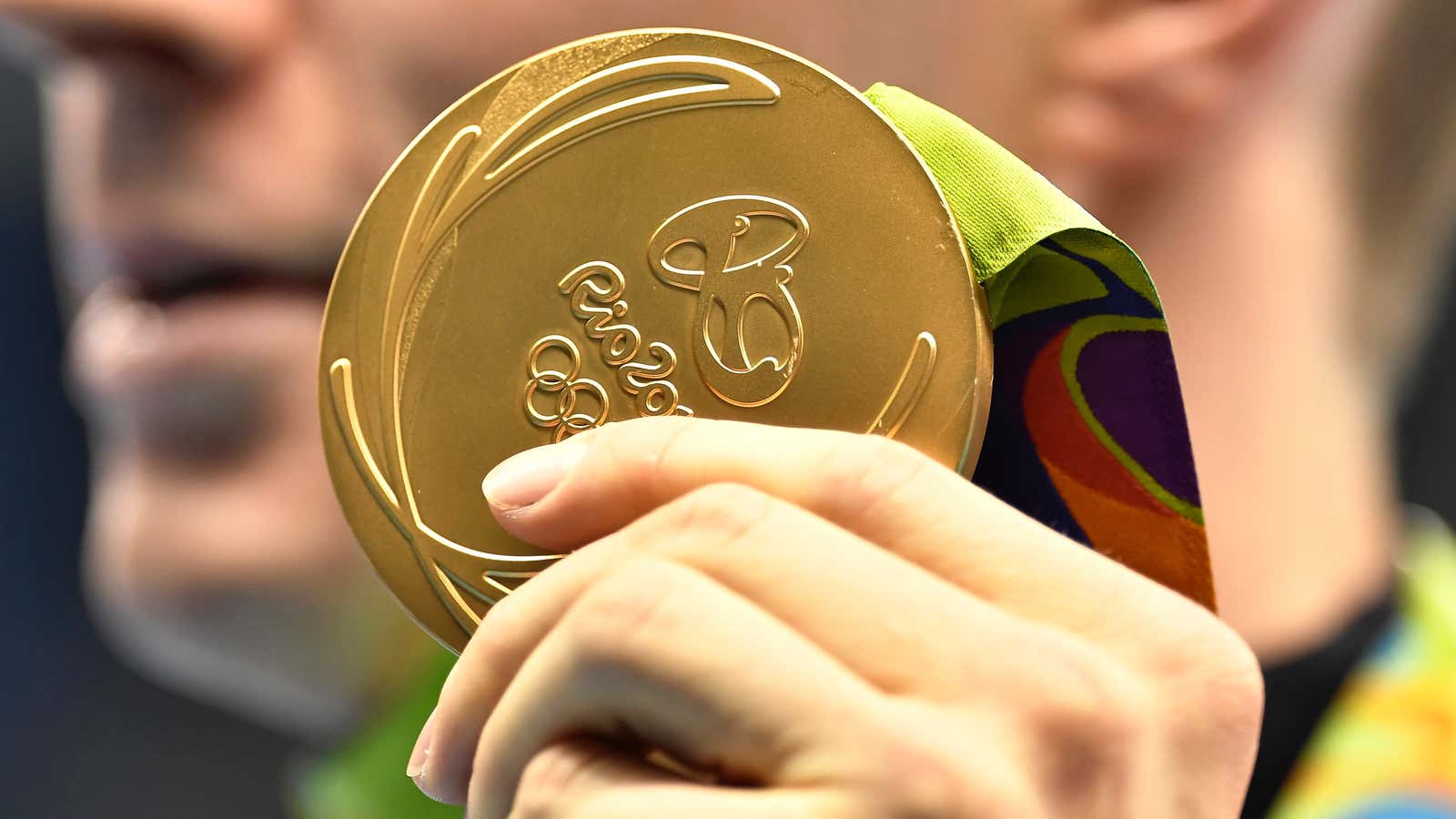The Tokyo Olympics are four years away, but host nation Japan is already upping its environmental game. For the 2020 Games, Japanese authorities plan “to source the gold, silver and bronze needed to make medals for the games by tapping the country’s “urban mine” the Nikkei Asian Review reports. The urban mine is the country’s millions of discarded smartphones and other small consumer electronics.
Typically, Olympic hosts ask mining companies to donate the necessary metal, but the gold and silver recovered from small consumer electronics in Japan has been estimated as equivalent to 16% and 22% of the world’s total reserves, respectively, according to Nikkei. With demand for silver high, though, it’s unclear if Japan will be able to recycle enough silver in time for the 2020 games.
A 2009 Japanese law made it mandatory to recycle home appliances—namely air conditioners, TVs, personal computers, washing machines, refrigerators and mobile phones.
Even though the country has been “an early adopter in the development and enforcement of a legal mechanism for e-waste,” according to a 2014 United Nations University report, it has a long way to go. In 2013, Japan’s nearly 128 million strong population unloaded 17.3 kilograms of electronic waste per person, and about 556,000 tons of e-waste were collected and treated in Japan. That was still only 24% of all e-waste estimated generated that year.
At this year’s games in Rio, Olympic medals were also recycled from waste materials: About 30% of the silver, used to make both the gold and silver medals, came from leftover mirrors, solder and X-ray plates. Bronze medals were made with copper waste from the national mint, and even the ribbons were crafted from recycled plastic.
